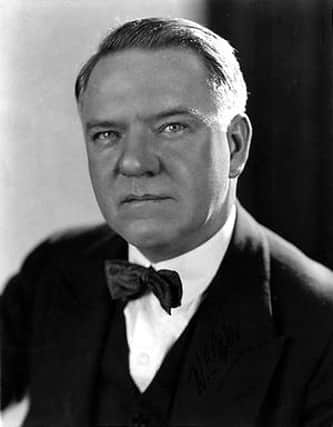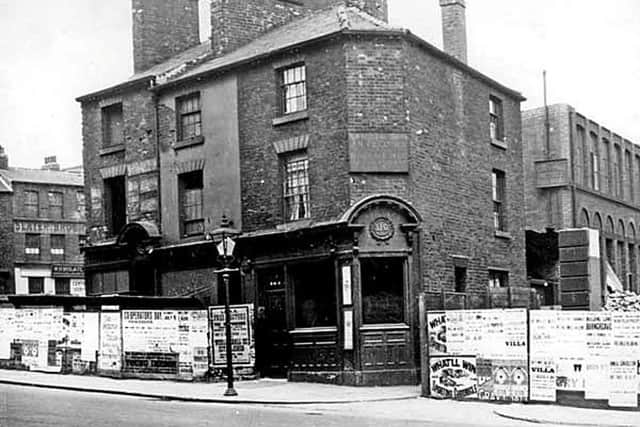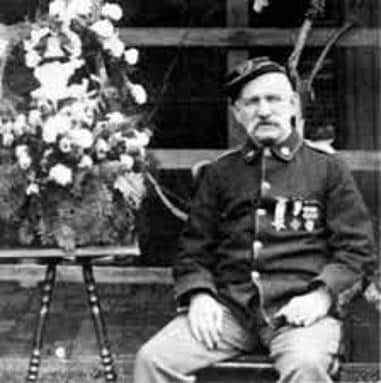Famous entertainer is rooted in Sheffield


On February 16, 1841, James Dukenfield was born to John and Mary at their home at Barker Pool – it was originally Barker Pool and not Barker’s Pool.
He was baptised at St Marie’s nearly a year later, on October 24.
Advertisement
Hide AdAdvertisement
Hide AdHis father John was a comb maker and it seems he worked alongside his brother George.


Young James`s great grandfather was also a combmaker at 48 Backfields.
In 1845, John and George were both working out of premises at 50 Rockingham Lane and 11 and 13 Backfields.
They were still working out of the Backfields workshop in 1849.
Advertisement
Hide AdAdvertisement
Hide AdLooking at the 1841 census, at the Barker Pool home lived his father John, aged 35, his 30-year-old mother Ann, his brothers Walter, five, three-year-old John and Edmund, two, and James himself, aged just three months.


In 1854, John and Ann decided to emigrate to America with his family and his brother George to get better opportunities.
The family settled in Darby, Pennsylvania – the settlement was named after Derby in Derbyshire, but because it was pronounced Darby, it stuck.
When the brothers emigrated less than 400 residents lived there.
Advertisement
Hide AdAdvertisement
Hide AdThe 1860 census enumerates the family as follows: John Dukenfield, aged 50, combmaker, 19th Ward, near Front and Norris Streets. born in England; Ann, wife, 44; Walter, 25, combmaker; John 23, bricklayer; Edmund 21, bricklayer; Farris(?) 20, peddler; George 18 weaver; Clara 16; Arthur, 14; Aspen(?) 11; Mary eight; and Godfrey five.
WC Fields’s 19-year-old father James is not on the census sheet.
James and George Dukenfield joined the PA 72nd Regiment on August 10, 1861.
The regiment assigned James to Company ‘M’ and George to Company ‘I’.
Advertisement
Hide AdAdvertisement
Hide AdThe enlistment record describes James as a potter, about 5ft 5in, with blue eyes, ‘light’ hair and a ‘light’ complexion.
On June 27, 1862, he was shot in the left hand and lost two fingers and the top of another in a skirmish near Fair Oaks, Virginia.
After two weeks in a field hospital, the Army transferred him to Philadelphia, then gave him a medical discharge on July 18, 1862.
He began receiving a $15 per month disability pension from the government in about April 1863.
Advertisement
Hide AdAdvertisement
Hide AdGeorge, his brother, fought at Antietam on September 17, 1862, Fredericksburg on December 13, 1862, Chancellorsville in May 1863 and was killed in action at Gettysburg on July 2, 1863.
He is buried in the National Battlefield Cemetery, in grave 18 in section C.
Sadly, all staff at the cemetery have been sent home due to coronavirus and could not supply a photo of the grave.
Strange to think that in the space of eight years these two combmaking brothers fought in the American Civil War, where James was wounded and George lost his life.
Advertisement
Hide AdAdvertisement
Hide AdIt is here that I find the story of the Dukenfields interesting.
As the years passed, James Lydon Dukenfield Jnr grew up and met 24-year-old Kate Spangler Felton.
They married on May 18, 1879 at Memorial Methodist Church.
This union would produce a child who would become a household name and gave so much enjoyment throughout the world, born on January 29, 1880 in the Buttonwood Hotel, where his father, who left Sheffield aged 13, is listed as hotel keeper.
This child was William Claude Dukenfield, soon to become WC Fields, juggler extraordinaire and actor and comedian.
Advertisement
Hide AdAdvertisement
Hide AdThe 1876 Philadelphia City Directory lists James Dukenfield as a clerk.
After marrying, he worked as an independent produce merchant and a part-time hotel-keeper.
Claude Dukenfield, as he was known, had a volatile relationship with his short-tempered father.
He ran away from home repeatedly, beginning at the age of nine, often to stay with his grandmother or an uncle.
Advertisement
Hide AdAdvertisement
Hide AdHis education was sporadic and did not progress beyond grade school.
Aged 12, he worked with his father selling produce from a wagon. However, that ended when the two had a fight that resulted in Fields running away once again.
In 1893, he worked briefly at the Strawbridge and Clothier department store and in an oyster house.
In later life, WC Fields embellished stories of his childhood, depicting himself as a runaway who lived by his wits on the streets of Philadelphia from an early age, but his home life is believed to have been reasonably happy.
Advertisement
Hide AdAdvertisement
Hide AdHe had already discovered in himself a facility for juggling, and a performance he witnessed at a local theatre inspired him to dedicate substantial time to perfecting his juggling.
Aged 17, he was living with his family and performing a juggling act at church and theatre shows.
In 1904, Fields’s father visited him for two months in England while he was performing there in music halls. I would imagine his father visited his birth town even though he had no memory of it.
By 1938, he was chronically ill through alcohol abuse and suffering from delirium tremens.
Advertisement
Hide AdAdvertisement
Hide AdWC Fields spent the last 22 months of his life at the Las Encinas Sanatorium in Pasadena, California. In 1946, on Christmas Day—the holiday he said he despised—he had a massive gastric haemorrhage and died, aged 66.
Carlotta Monti wrote that in his final moments, she used a garden hose to spray water onto the roof over his bedroom to simulate his favourite sound, falling rain.
WC Fields’s funeral took place on January 2, 1947, in Glendale, California.